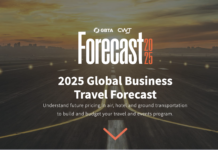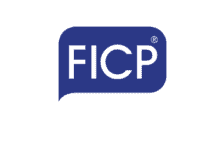
The 9th annual CWT-GBTA study explores the drivers of change for corporate travel, and where prices are heading.
Corporate travel has rebounded. But planners are facing astounding price hikes and competing head on with pent-up demand from leisure travelers, as well as against a headwind of economic constraints. That’s chief among the takeaways from the recent Global Travel Business Forecast conducted by CWT (a global business travel and meetings specialist) and GBTA (the Global Business Travel Association). The study analyzed data from more than 70 million ticketed flights, over 125 million hotel room night bookings and more than 30 million car hires to benchmark demand and pricing for 2023 and 2024.
Rising costs raise many questions, according to the study. “Are higher prices here to stay as the new normal? What is the real price for travel today? Do higher business travel costs need to be factored into a higher cost of doing business overall? What should companies be thinking about now to anticipate and prepare for, to do what’s best for their organizations and their travelers in terms of in-person meeting opportunities?” However, “amidst these questions, there is no doubt that business travel and the in-person meetings they enable will continue to be a vital catalyst for the growth and advancement of economies, organizations and people worldwide,” said Suzanne Neufang, CEO, GBTA.
Among the study results:
Global Travel Trends
•Travel demand remains almost universally strong, globally. However, 2023 and 2024 will present a dynamic environment characterized by economic uncertainty and heightened volatility amid complex global political situations affecting certain regions.
•Among the meteoric price hikes in 2022: The average cost of an economy air ticket was up more than 54 percent and a midscale hotel room was up 24 percent.
•High inflation has increased operating costs for travel suppliers and high interest rates are predicted to continue for the next two years.
•The transition to a low-carbon economy will heavily influence future prices and the types of travel booked.
•The CWT-GBTA data showed an escalating price increase for premium and upscale business products in air and hotel, which are rising higher than for economy or mid-scale.
•in 2022 the average ticket price for airfare rose by 72 percent. Looking forward, price growth is likely to be more modest, albeit from an already high base.
•The global average daily room rate rose to $161 in 2022, more than $14 higher than predicted last year, representing a rise of 29.8 percent year-over-year. Cities from Miami to London to Singapore reported their highest average daily rates on record.
Meeting and Event Trends
• Meetings and events have rebounded sharply. There is still pent-up demand post-Covid, as well as growth in incentive travel as companies seek to motivate and reward employees. As a result, trips have become longer, more frequent and often with more participants.
•With raised prices and constricted availability throughout the entire travel supply chain, planners should not anticipate a return to 2019 pricing.
•Lead times for events remain short. However, organizers should look at 2024 with a 12-month planning cycle in order to keep prices at a reasonable level.
•Event sustainability and creative event experiences are increasingly important, despite the cost implications.
• It has become increasingly difficult for dispersed workforces to engage with clients, collaborate, become immersed in company culture and be motivated unless they meet face-to-face. Meetings that bring people together, also called “energizing events,” build relationships and drive networking. Companies are not cutting budgets for these crucial get-togethers.
You May Also Be Interested In…
Incentive Travel Forecast: Strong Demand, Strong Concerns
New SITE Research: Qualifiers Choose Incentive Travel as Top Reward










